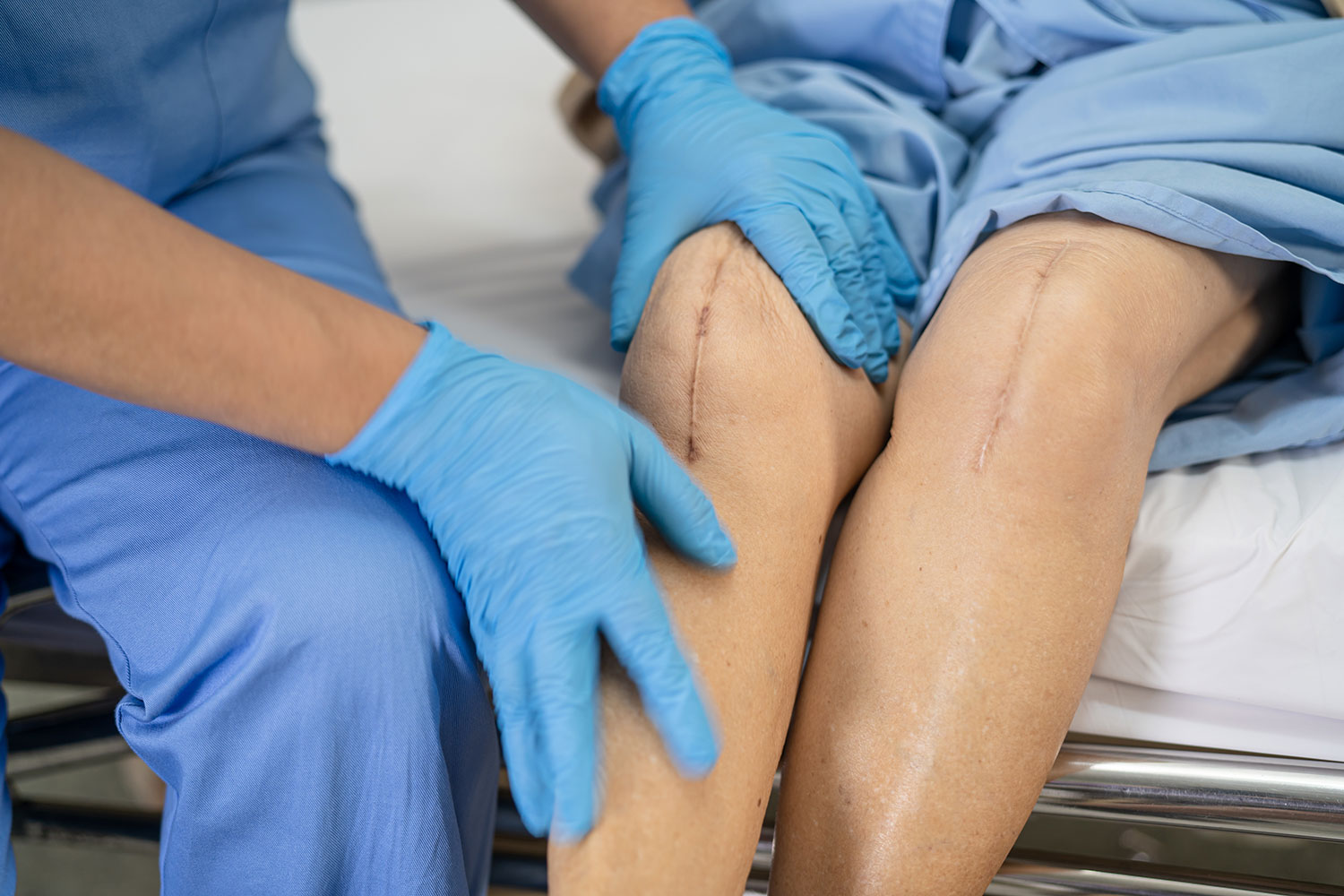How Long Does a Total Knee Replacement Last?

The concept of aging being associated with aches and pains is slowly but surely changing. Our senior citizens are realizing that increasing age does not mean a sedentary lifestyle; many want to continue leading active and independent lives and this is definitely something to be encouraged as an active life translates to happy people with significantly fewer mental health issues.
Osteoarthritis is a bane of the elderly. It impacts their mobility and lowers their quality of life. When medication, physiotherapy and injections do not alleviate arthritic pain, it may be necessary to consider a joint replacement surgery. In case of severe knee pain which prevents daily activities like climbing stairs or even going for a walk, a knee replacement surgery might bring considerable relief.
Joint replacement surgeries have come a long way since their introduction in the late 1960s. Total knee replacement surgeries are widely performed nowadays with a very high success rate.
What Happens During a Total Knee Replacement?
Usually, severe arthritis necessitates a knee replacement surgery though sometimes trauma and sports injuries too might require one.
- The knee joint is the meeting point of the thigh bone and the shin bone.
- Both bones are covered in cartilage that allows smooth, friction-free joint movement.
- Osteoarthritis results in degenerative changes in the cartilage and as a result the bones rub against each other resulting in pain.
- A knee replacement involves removing the damaged part of the knee and replacing it with a prosthetic part (an implant).
Implants Used
- Thanks to the advances in medical science, the implants too have undergone changes for the better.
- They are chosen for patients keeping in mind their height, weight and activity level.
- Their make too differs with a number of options being available – plastic, ceramic and metal.
- Implants for women are especially made keeping their requirements in mind.
Life of the Implants
- When knee replacement surgeries were first performed, the life of the implant was expected to be around 10 years.
- Now, they are expected to last significantly longer – 15 to 20 years.
- However, it is important to remember that the life of the implant is dependent on the amount of activity it is subjected to.
- Another factor is the individual’s weight as excessive weight will increase the implant’s wear and tear.
- Doctors will advise on the kind of activities a person can participate in after a knee replacement.
- While jumping, running and other activities which stress the joint are best avoided, low impact activities like walking, swimming, etc., can be performed.
- The life of the joint thus also depends on how well it is taken care of.
When Youngsters Undergo Knee Replacement
- Young people are usually more active.
- This can lead to the joint being subjected to more wear and tear compared to older people.
- As a result, the implants will degrade faster compared to older adults.
- A second replacement may be needed if this happens.
The Effect of Risk Factors
Uncontrolled risk factors might lead to the replaced joint contracting infection. The risk factors include:
- Elevated sugar levels
- Being overweight
- Non-nutritious diet
By eliminating the risk factors, the chances for the procedure’s success increases.
The following play a role in a patient’s prognosis after a knee replacement surgery.
- In case of overweight patients, having a target weight to achieve before surgery that would improve the life of the prosthetic.
- By performing exercises which will help get the patient ready for surgery – these are called prehab exercises. These will help with the range of movement of joint and strength as well.
- Keeping up with the ever-improving surgical techniques.
- Regular physiotherapy after surgery.
A Knee Replacement Surgery Should Be Performed at the Right Time
In spite of the high success rate of knee replacement surgery, there still looms a fear of invasive procedure in the minds of people. As a result, they keep procrastinating and delaying it. When the surgery is delayed, the outcome of the delayed procedure will not be as beneficial to the patient.
- By delaying the surgery, the patient’s quality of life is affected. This could lead to mental health issues.
- The mobility of the replaced joint will not be as good.
- Recovery takes longer.
Performing a knee replacement too early should also be avoided. Such people have increased chances of complications post-surgery and may need a second surgery. A second surgery is always more complex that the first and is best avoided.
Patient Satisfaction after Total Knee Replacement
Majority of the patients (more than 80%) are happy with the results of a total knee replacement. It is important to understand that a total knee replacement will not take the patient to his pre-arthritic stage. However, there will be a considerable improvement after surgery in terms of both pain and mobility. Patients are advised to talk to the doctor about what to expect from a knee replacement procedure before undergoing one.
- The patient’s involvement in the rehabilitation process is a huge determinant in the outcome of the procedure.
- If the patient does not perform the rehabilitation exercises, the mobility of the joint will decrease from what it could have been.
- Recovery is also inhibited in people who smoke.
- Follow-up visits with the doctor are important and should not be missed.
- Complete recovery from a knee replacement can take up to a year – for the patient to recognize fully the benefits of the surgery.
